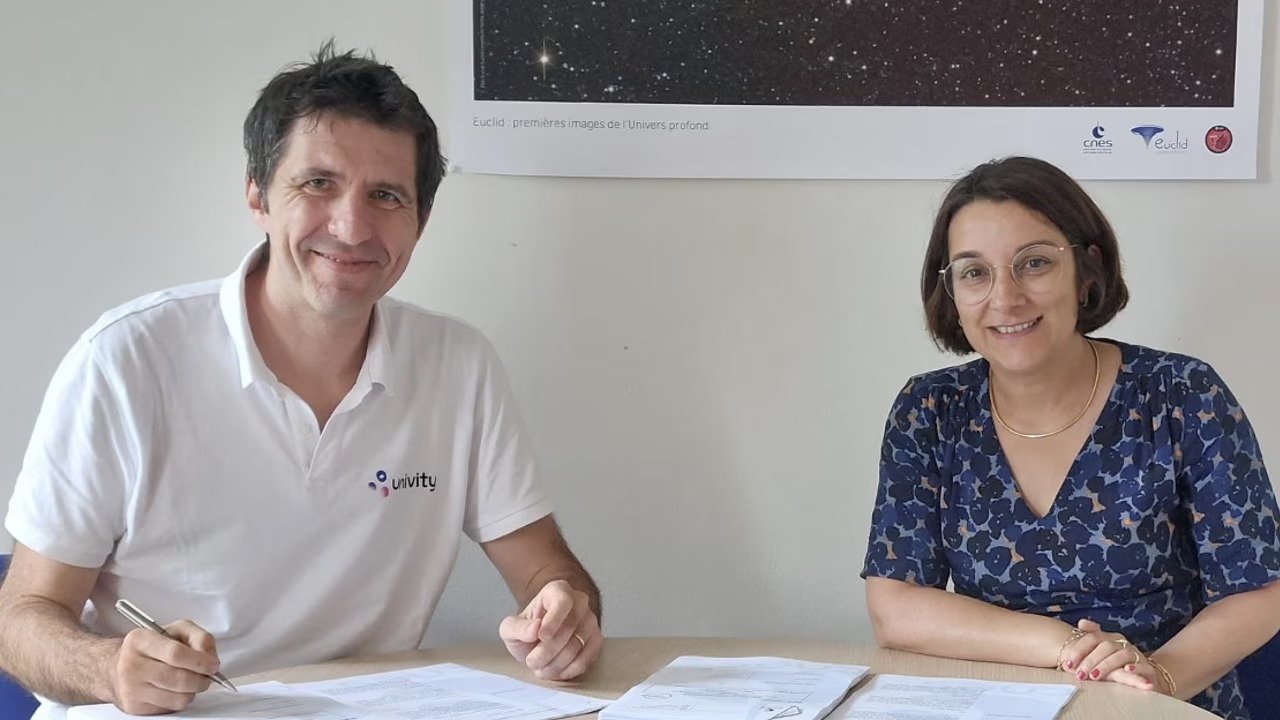CNES (Centre National d'Etudes Spatiales), the public establishment responsible for proposing French space policy to the Government and implementing it in Europe, has awarded €31 million in strategic funding to UNIVITY — formerly Constellation Technologies & Operations — as part of a France 2030 call for projects operated by CNES.
This support marks a decisive step in the development of space-based 5G made in France and in the realisation of UNIVITY’s industrial ambition.
While American and Chinese giants dominate the race for satellite connectivity, French startup UNIVITY is changing the game with a bold vision rooted in innovation and industrial sovereignty.
Selected under the France 2030 space program following a competitive bidding process, UNIVITY — together with TDF — will carry out a demonstration of satellite-based 5G connectivity.
Through real-world use cases, this experiment will validate the relevance of a fully integrated 5G NTN solution, designed and built in France, combining very low Earth orbit (VLEO) satellites with terrestrial infrastructure.
TDF will play a central role in the project’s operational implementation, managing the hosting, installation, operation, and maintenance of three gateway stations—two in mainland France and one overseas. These gateways will be essential to ensure seamless interoperability between the satellite system and telecom operators’ terrestrial networks.
The France 2030 co-funded project, with 30 per cent industrial contribution, will unfold through to 2028 in two phases:
- Phase 1 (July 2025 – April 2026): technical specification and use case studies.
- Phase 2 (April 2026 – February 2028): assembly, integration, testing, launch, and in-orbit operation of two VLEO 5G satellites communicating with gateways and ground terminals to demonstrate high-throughput, low-latency services.
“Thanks to France 2030 funding, CNES is supporting UNIVITY in preparing, through the in-orbit demonstration ‘uniShape,’ a satellite-based 5G-NTN service designed to meet the needs of terrestrial operators. UNIVITY’s ‘ uniSky’ constellation aims to deliver a distinctive French solution for high-speed space-based 5G-NTN connectivity, serving both consumer and professional users, built on innovative concepts and breakthrough technologies,” said Caroline Laurent, Director of Orbital Systems and Applications, CNES.
According to Véronique Bonnet, Program Director at UNIVITY:
“We are proud to have the support of France 2030 for this project, which represents a true strategic milestone for us. This recognition validates both our expertise and our vision of converging terrestrial and space networks.
Our entire team is fully committed to this challenge, ready to deliver with enthusiasm, ambition, and determination."
This €44 million program consolidates UNIVITY’s ambitious trajectory. Less than six months after raising €9.3 million, the company successfully launched its first regenerative 5G mmWave payload for space telecommunications in June 2025.
Next milestones include the launch of two prototype satellites in 2027, followed by the gradual deployment of the constellation between 2028 and 2030.
Image: From left to right: Charles Delfieux, CEO of UNIVITY, and Christelle Boustie, Deputy Director of Telecommunications and Navigation Projects at CNES, during the official contract signing. Credit: Photo © UNIVITY / CNES



Would you like to write the first comment?
Login to post comments